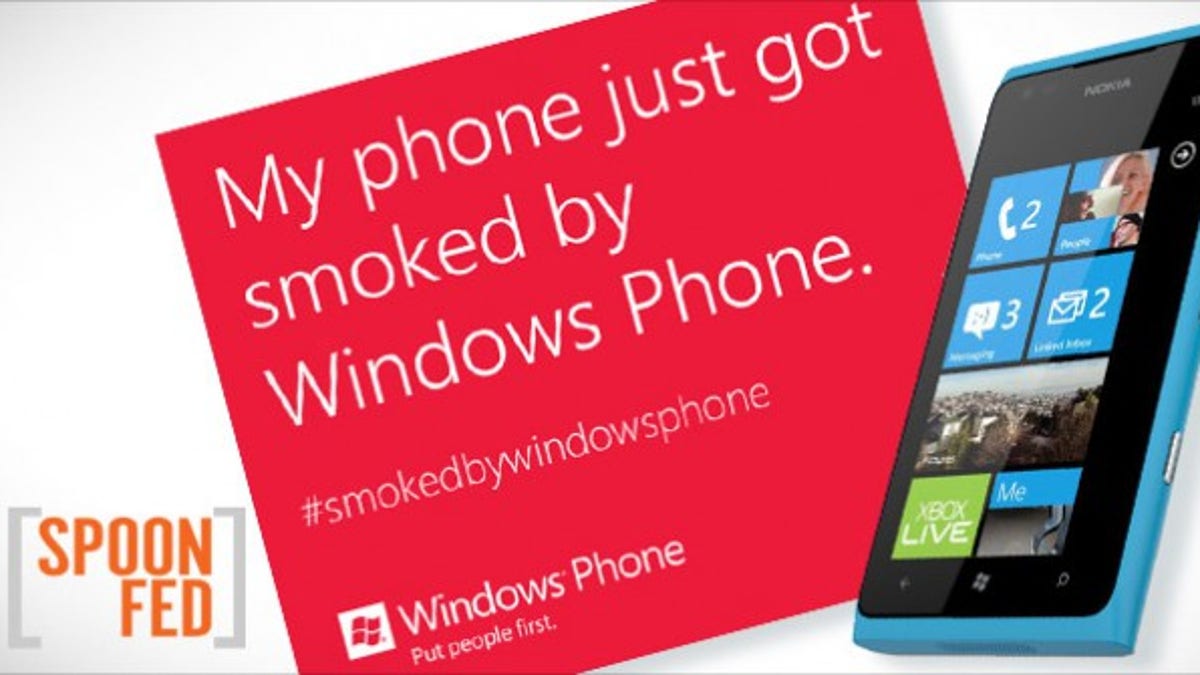
Do a Google search for "Windows Phone Challenge" and you'll see the following cheery results: "Is the Microsoft Windows Phone Challenge a Scam," "Smoke and Mirrors: taking the Windows Phone Challenge" and "I Won the Windows Phone Challenge, But Lost 'Just Because'. You don't even need to know what the Windows Phone Challenge is to deduce that Microsoft is losing the PR battle. But I know how the company can win.
For those who haven't been following the controversy, the Windows Phone Challenge is a contest being held at Microsoft stores in which people are invited to beat a Windows Phone with their Android device or iPhone in one of five tasks. For example, you might be asked to snap and post a photo to Facebook as fast as you can or look up the weather for two different cities.
As it turns out, a Galaxy Nexus owner defeated a Windows Phone on the weather challenge. He was told he lost because the two cities displayed on his handset were in the same state. Right. Unfortunately for Microsoft, the contestant happened to be Sahas Katta of Skatter Tech, who blogged about his frustrating experience for all the world to see. Microsoft eventually apologized but the damage was already done.
Bad publicity is the last thing Microsoft needs on the eve of the Nokia Lumia 900 launch, a flagship phone for an OS that has managed to scrape together less than 2 percent market share. The good news? AT&T says this launch will be the carrier's biggest ever — even bigger than the iPhone — and both it and Nokia will be spending a lot of money to promote the Lumia. And they’ll need to avoid all this my-phone-is-faster-than-yours hoopla to convert the masses.
Is speed important? Of course, and I believe that Microsoft should continue to tout features like the ability to unlock your phone and start snapping photos with the press of a button. But that's not what makes Windows Phone truly unique or compelling. It's the overall user experience that emphasizes the people you care about. Not just apps.
This is a tricky message to communicate to potential customers because they've been programmed to value the number of apps available. Many people I know boast about the number of apps they have on their phones as a badge of honor. This is not a game Microsoft is going to win. The Windows Marketplace recently surpassed 70,000 apps, which, while pretty good for a fairly young platform, is nowhere near the hundreds of thousands available for Android and iPhone.
Not to get all syrupy sentimental on you, but the best part about Windows Phone is that it's more personal and reminds you of what's most important. That Live Tile of the group I created for my family, which lets me see what's going on in their lives at a glance and message everyone at once. The Pictures Hub that displays a panoramic background photo of my four 4-year-old playing soccer. Too often technology serves as a mere distraction, but I don't feel that way about Windows Phone. The trick is getting smartphone shoppers to feel the same way.
And that brings us to the biggest challenge facing Windows Phone. Timed trials versus Android and the iPhone only get you only so far. You don't realize the platform's true benefits and strengths until you've set the phone up with your information. That’s why it will be critical for AT&T to work with customers to make sure their devices are personalized before they walk out the door. After all, they’re your true evangelists for the platform.
I’m not saying that Windows Phone is harder to use than Android or iOS. It’s just the simple fact that the elegance of the interface doesn’t truly shine until you’ve made the phone yours. It’s up to AT&T and Nokia to give shoppers that feel-good vibe before — and after — they buy.
Editor-in-chief Mark Spoonauer directs LAPTOP's online and print editorial content and has been covering mobile and wireless technology for over a decade. Each week Mark's SpoonFed column provides his insights and analysis of the biggest mobile trends and news. You can also follow him on Twitter.
